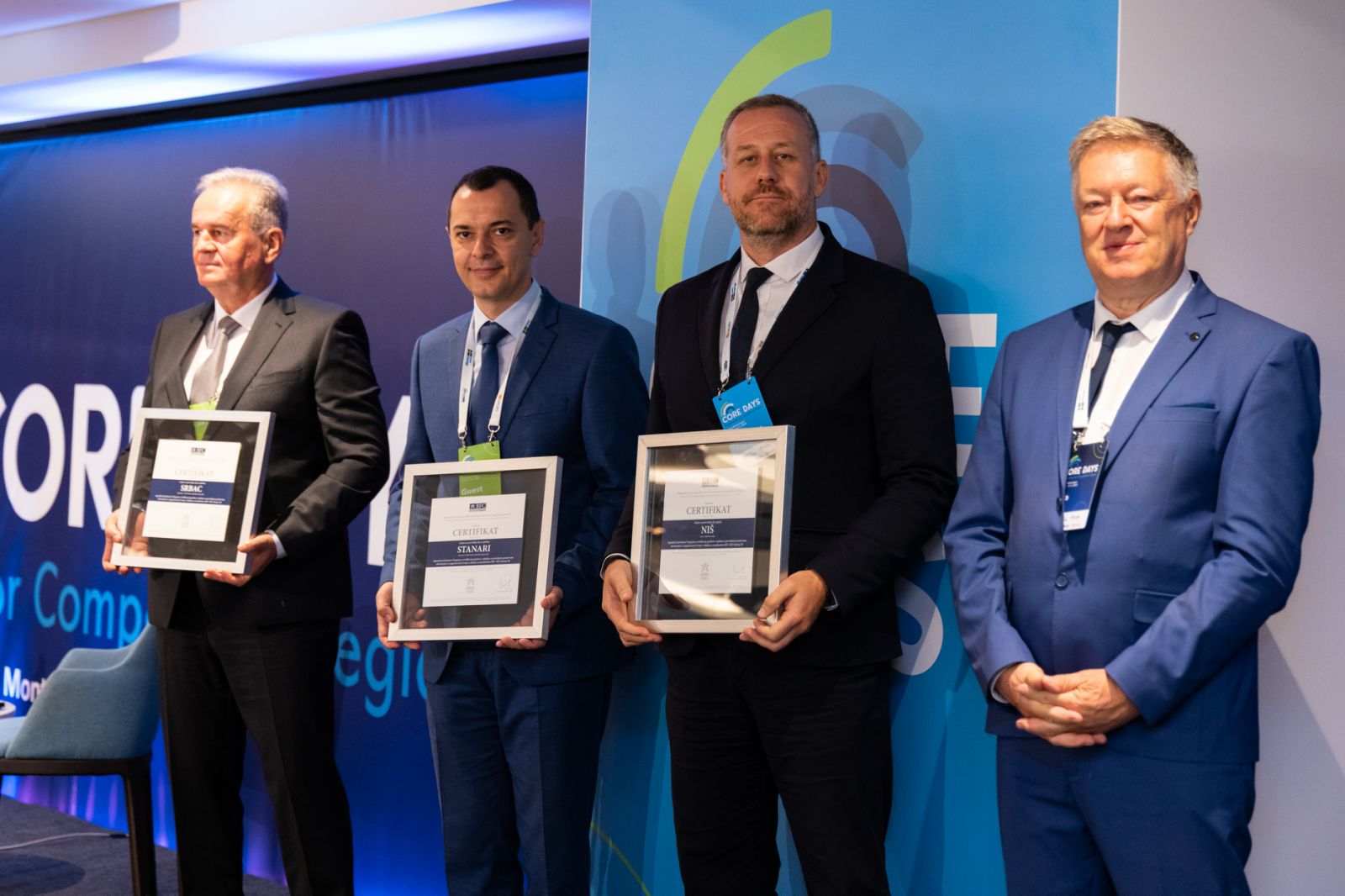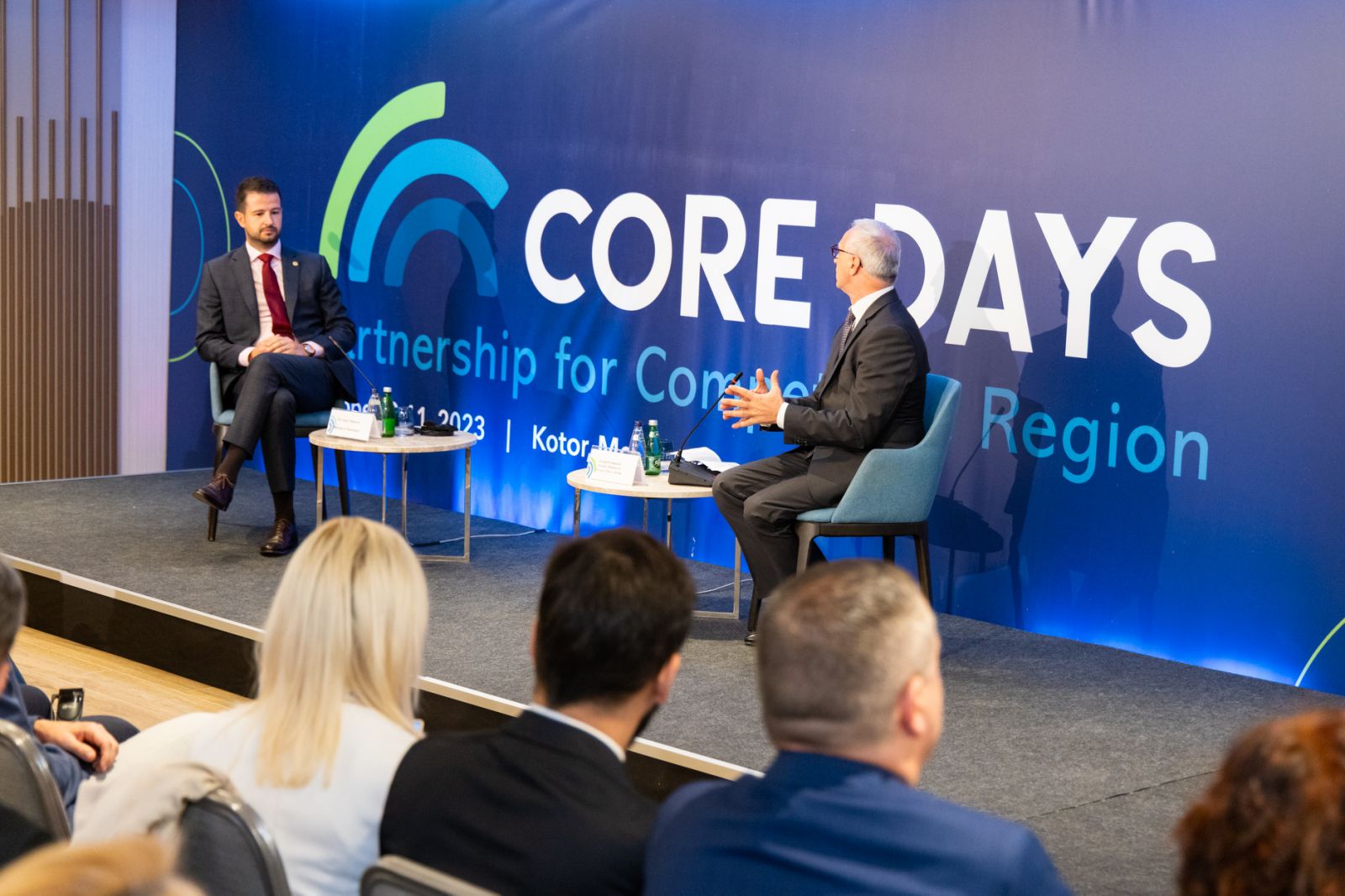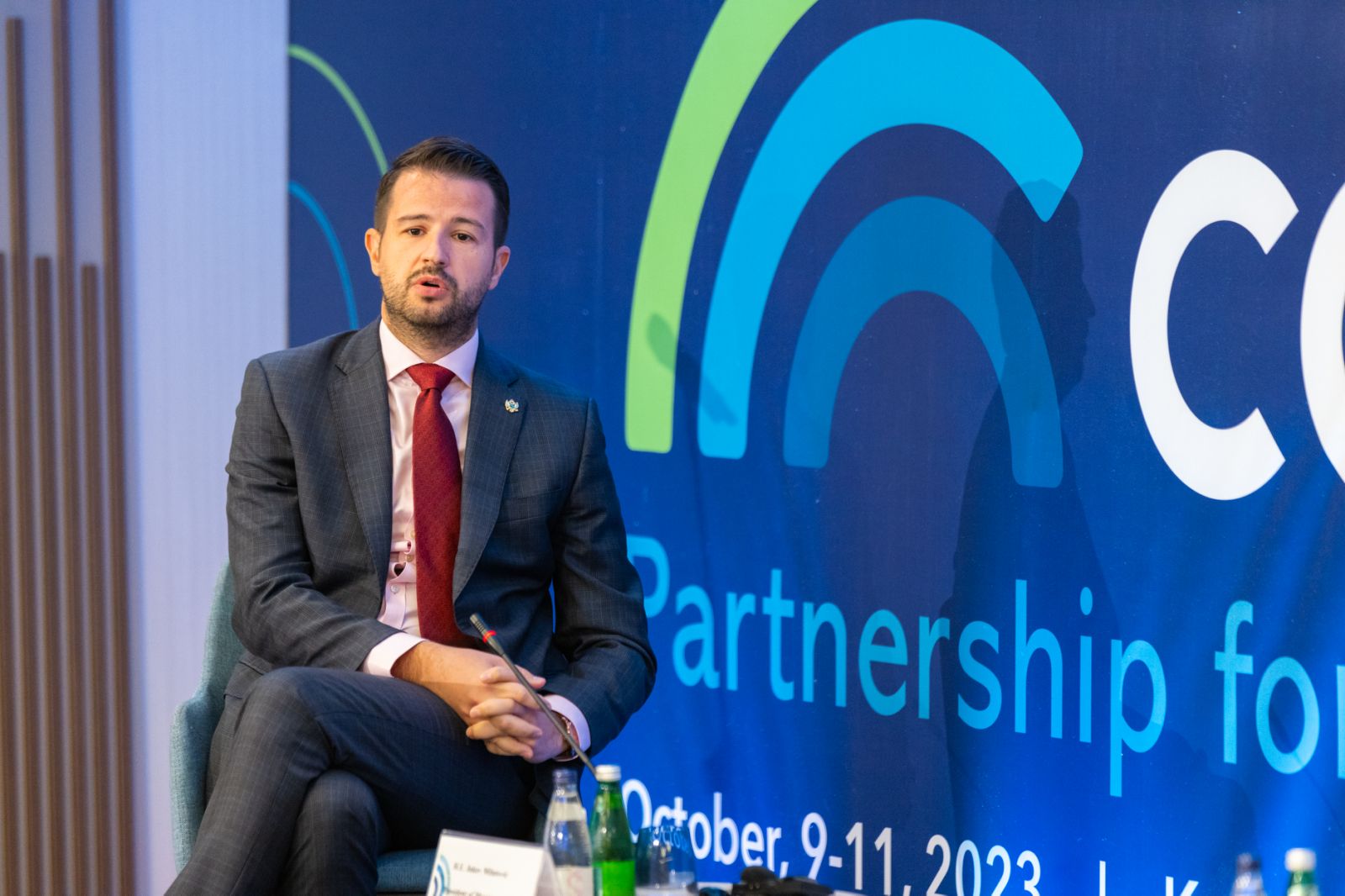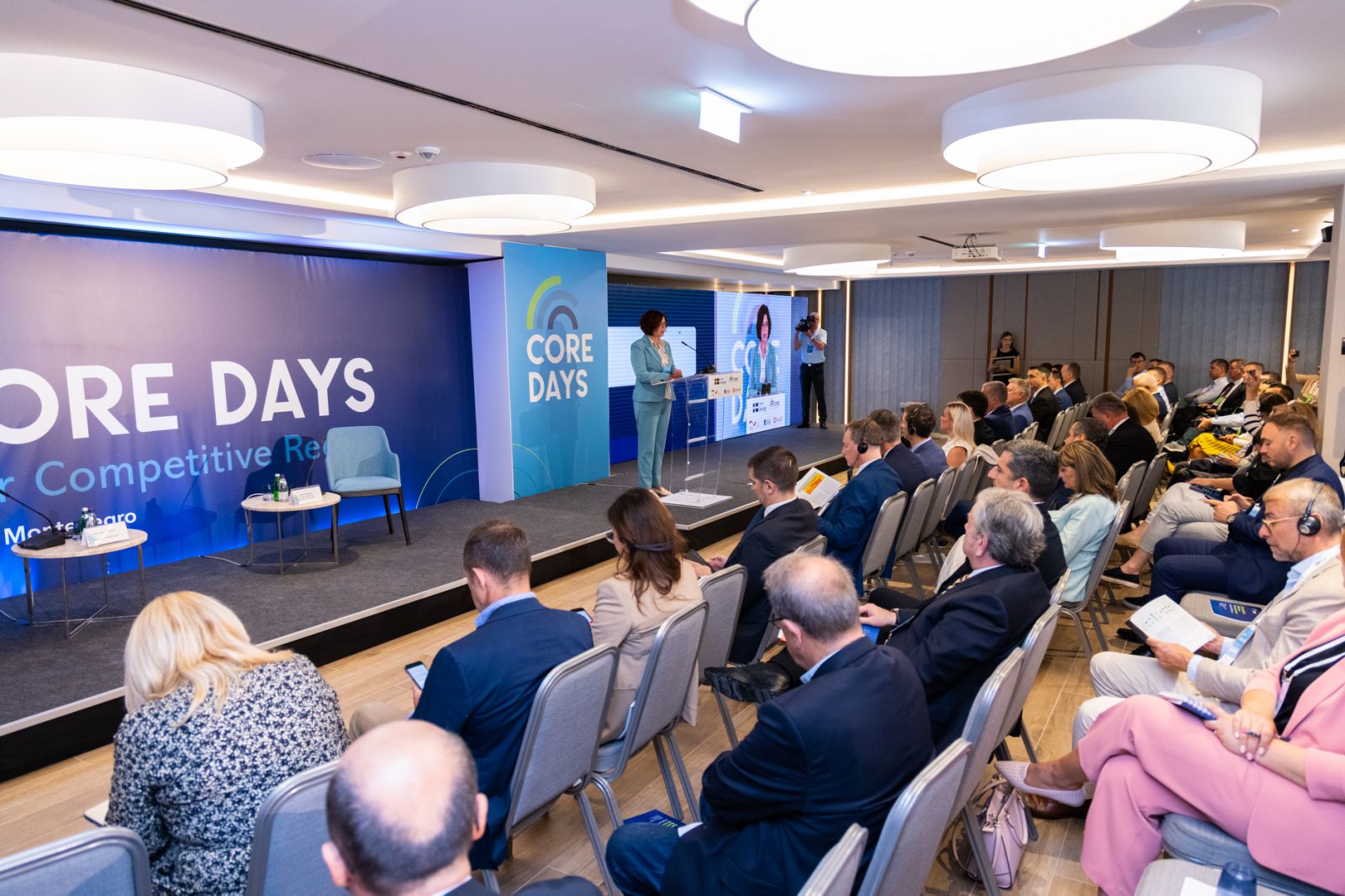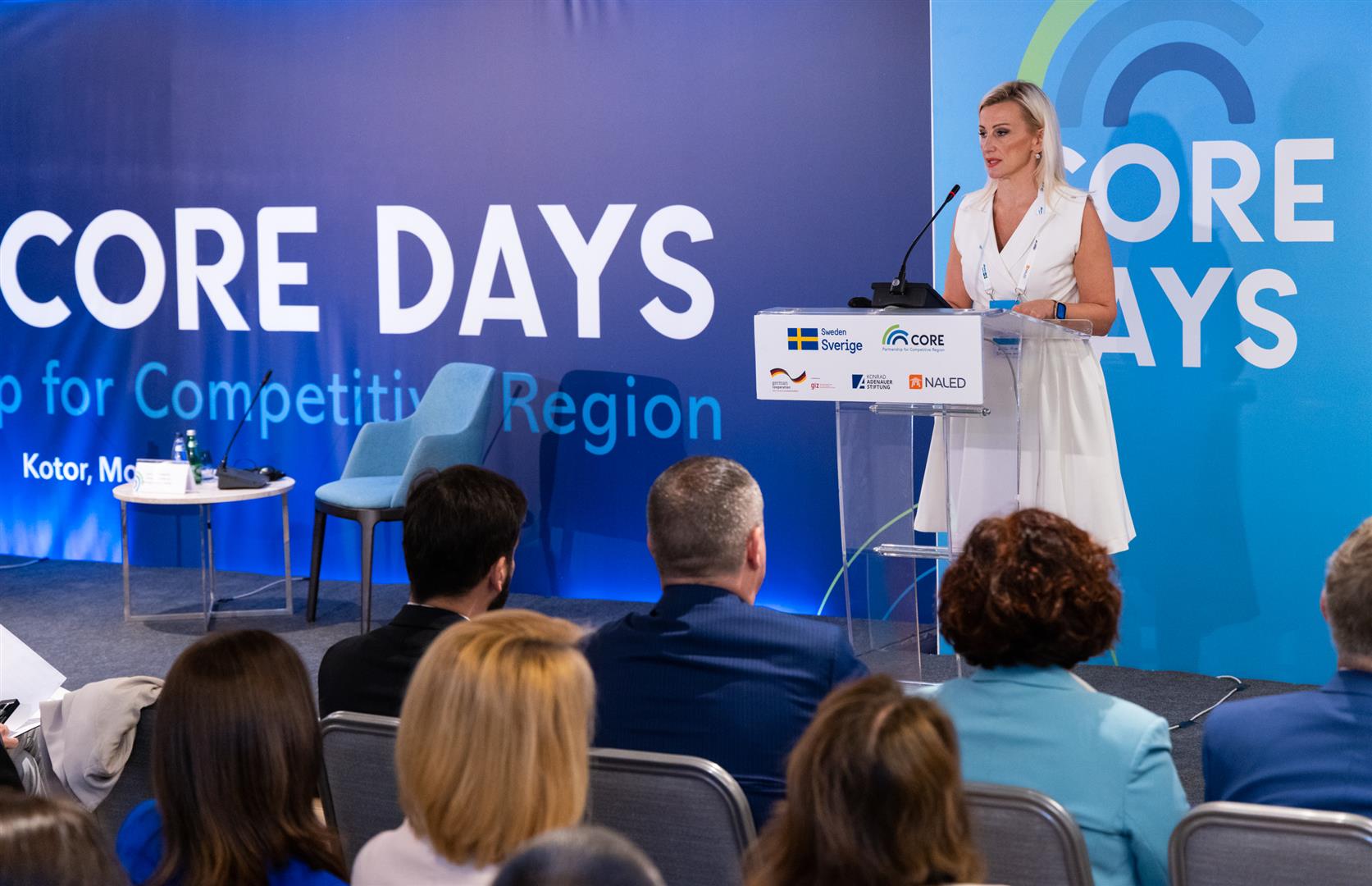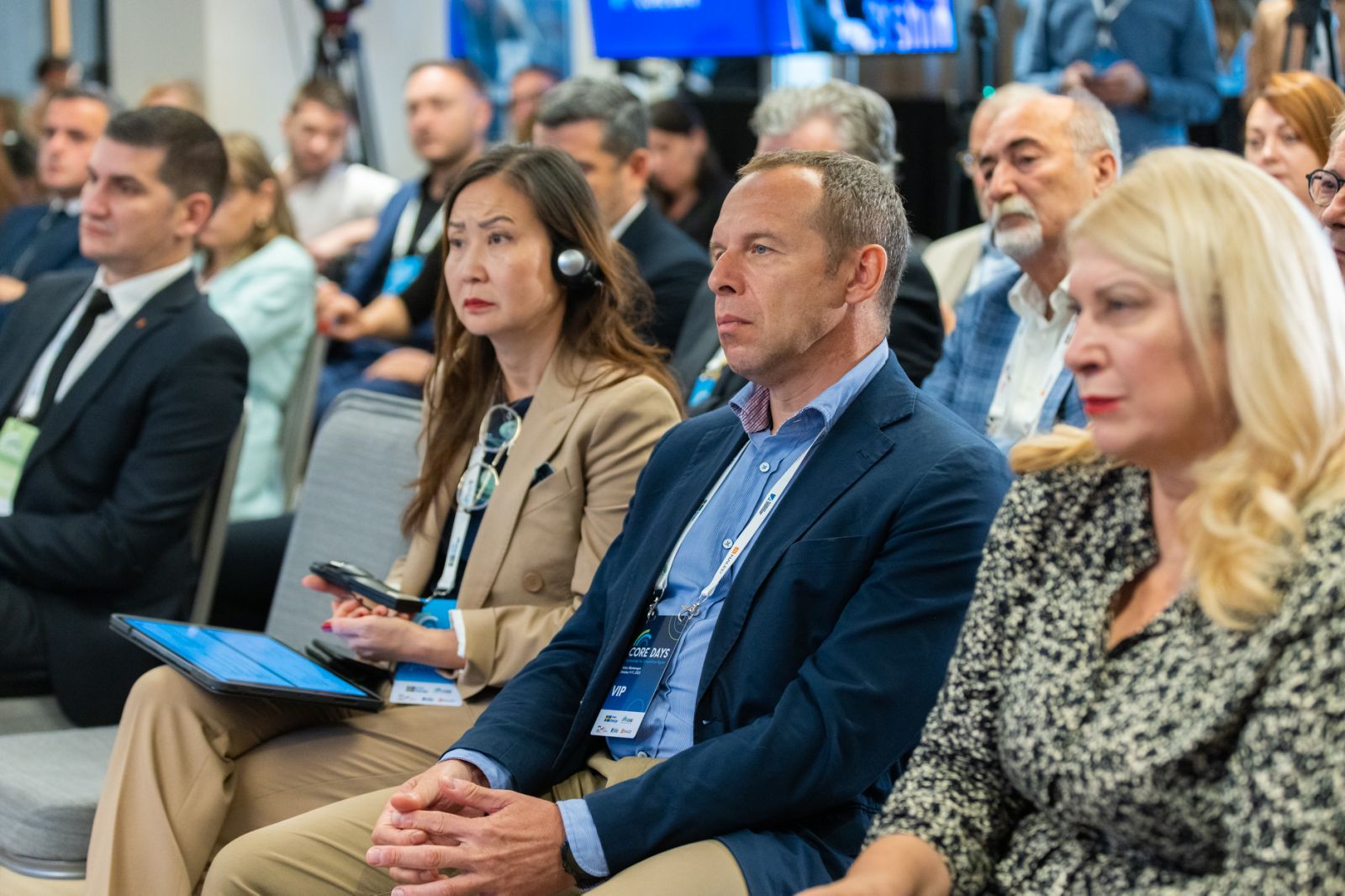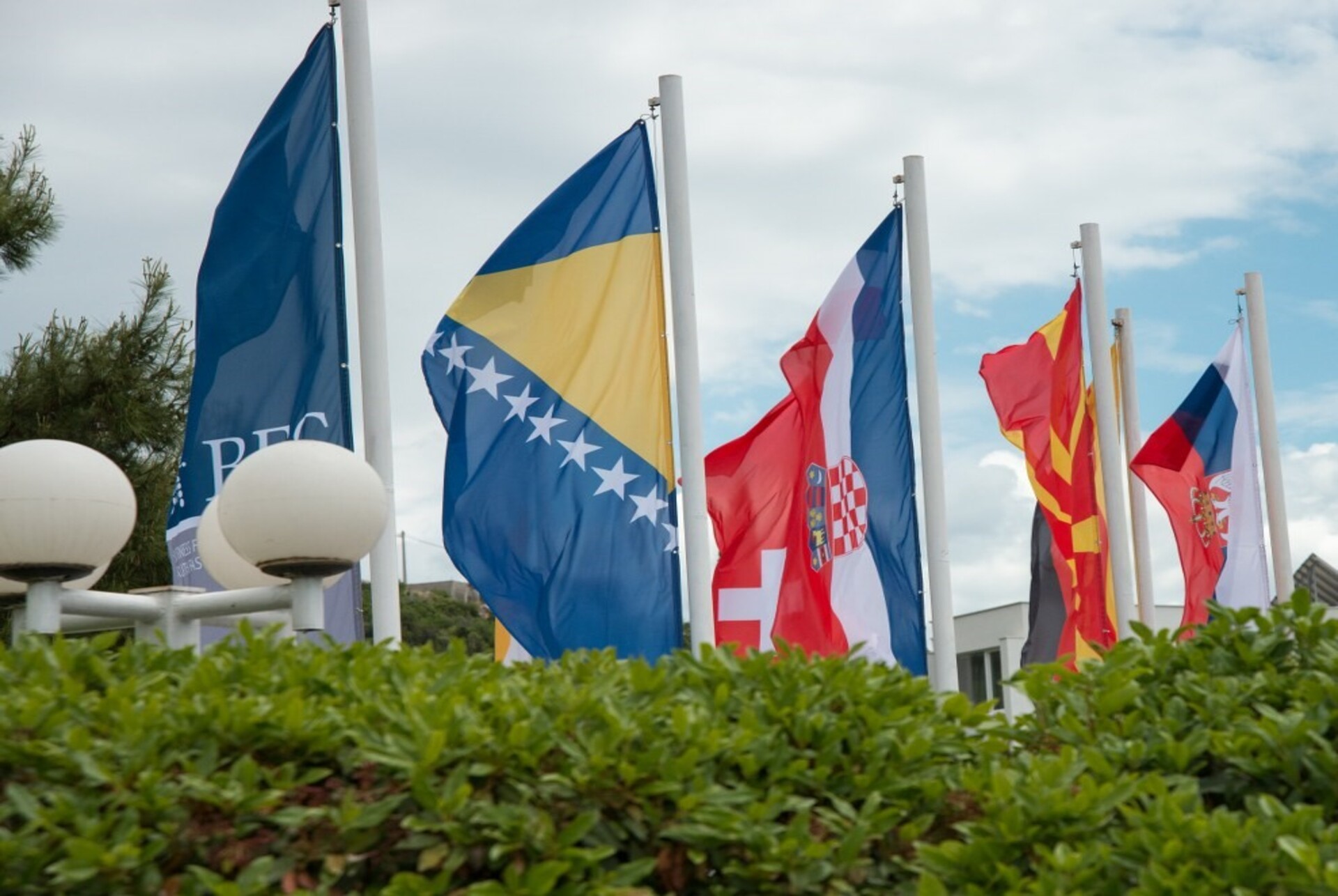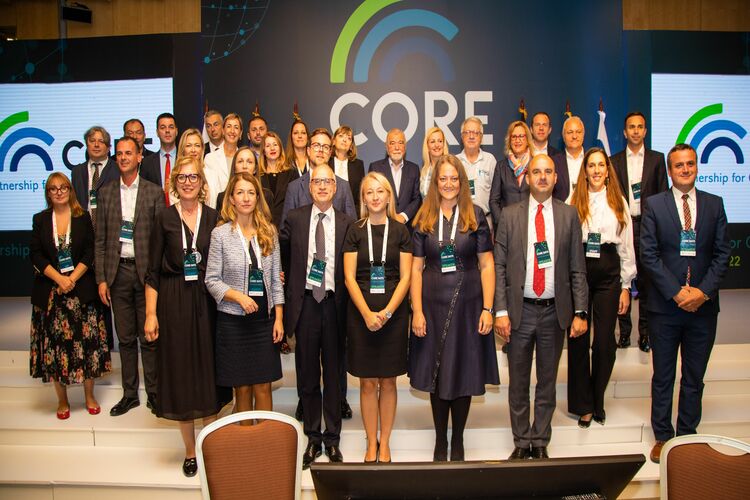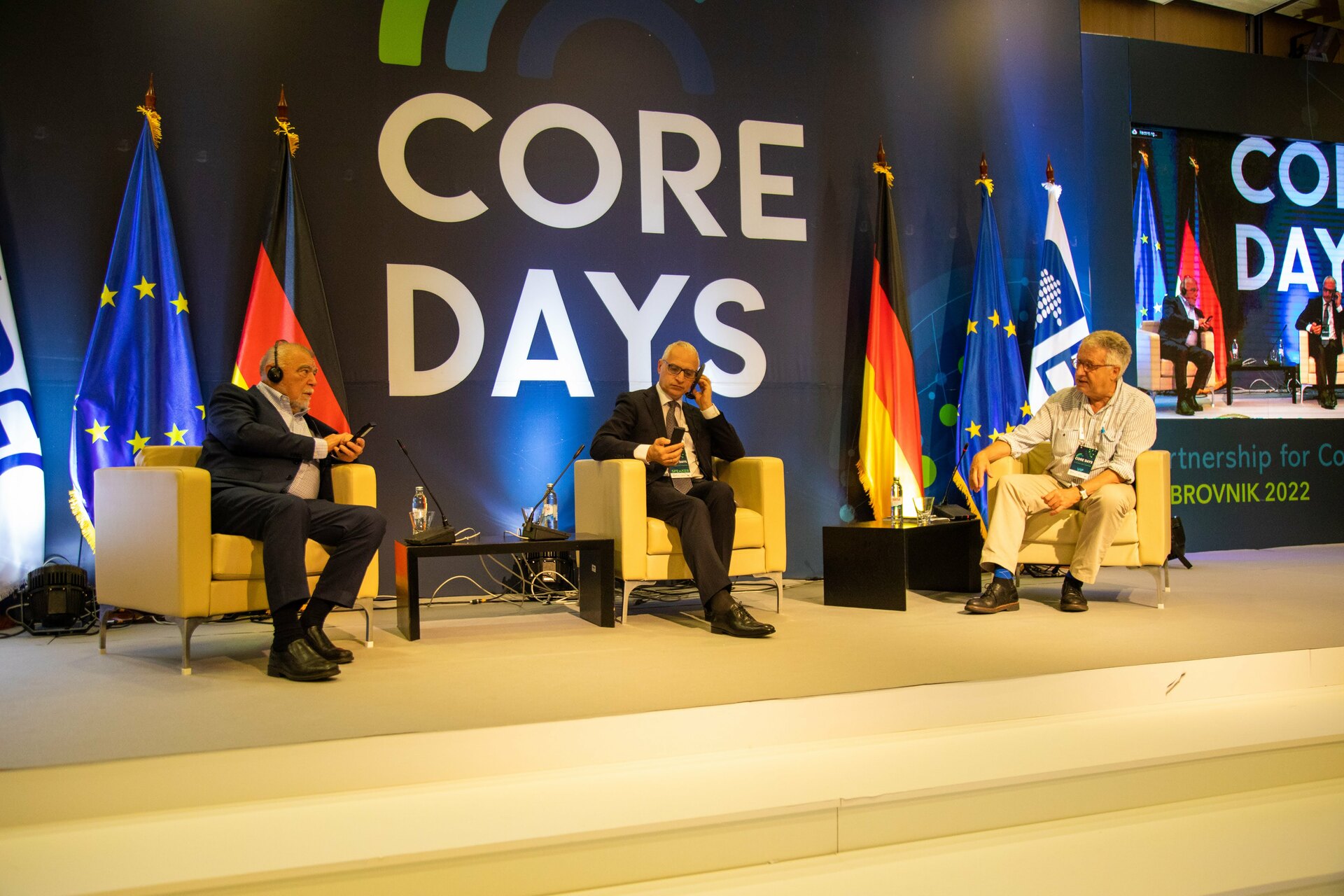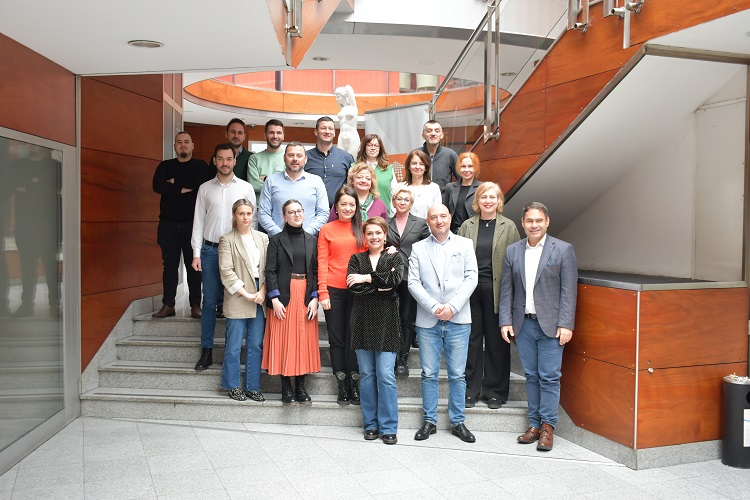Economies of the Region Show Nearly 10% Economic Growth Since 2020 – Collaboration and Dialogue Crucial Drivers for Sustainable Growth
The opening of the CORE Days international conference in Kotor unveiled an insight into significant growth in the regional economies over the past three years, outperforming EU’s 3% growth with a nearly 10% increase. The event also introduced the first-ever regional index evaluating conditions for sustainable economic development, covering Albania, Bosnia and Herzegovina, Montenegro, Croatia, Kosovo*, North Macedonia, and Serbia, which together form a market of almost 20 million inhabitants and a total GDP of close to 200 billion euros. The report emphasizes that for the further acceleration of economic growth, it is icrutial to enhance the business environment across the entire region.
In his address at the conference opening, President Jakov Milatović of Montenegro emphasized his commitment to fostering positive relations with neighboring countries.
“I am dedicated to rejuvenating and normalizing our relations with Serbia, and we have already made some strides in this direction. My visit to Belgrade is a testament to our efforts. Serbia stands as our largest tourism market, and last year, it was also the leading foreign investor. However, we lack an ambassador and direct payment transactions. Instead of politics acting as a catalyst, it has at times hindered our relations. I am determined to change this dynamic. The obstructive politics do not align with my policy. We must also remember that the European Union’s genesis was rooted in regional integration, a path that we should also pursue. I conveyed this message during my meeting in Zagreb,” stated Milatović.
The results of the first regional index reveal Croatia as the frontrunner in the region, benefitting from its EU membership and a relatively favorable business environment. The country excels notably in areas like macroeconomic stability and the rule of law. Serbia secures the second spot, with outstanding achievements in eFiscalization and the implementation of the electronic system for issuing building permits. Followed by Montenegro’s noteworthy tax reform and elimination of contributions to the health sector that yielded positive impacts on economic growth and budget revenue collection. Albania claims the fourth position, offering over 1,000 digitized services to approximately 2.8 million citizens and businesses. North Macedonia ranks fifth, showcasing commendable progress in regulatory quality. Kosovo* and Bosnia and Herzegovina find themselves at the lower end of the spectrum in this assessment.
Nicolas Markier, the IFC Regional Manager for the Western Balkans, expressed during the conference opening that the organization’s primary mission in the region revolves around advancing regional integration and fostering sustainable socio-economic development. He emphasized, “We are dedicated to nurturing the growth of the private sector in emerging markets, prioritizing the allocation of financial resources towards environmentally conscious and sustainable initiatives, while also considering their social and governance impacts.”
BFC SEE Certification
During the CORE Days conference, Niš, Paraćin, Stanari, and Srbac were honored with the prestigious BFC SEE certificate (Business Friendly Certification in Southeast Europe), joining a network of 44 local self-governments across the region that received certification in the latest cycle.
“The newly introduced fourth edition of the BFC standard, released this year, places particular emphasis on digitalization, sustainable and socially responsible development, environmental preservation, innovation fostering, and local-level EU integration. Over 60 cities from the entire region sought to attain this esteemed seal of quality in the new regional competition, focusing on the exchange and implementation of reform-oriented solutions crucial to the region’s progress toward EU integration,” highlighted Violeta Jovanović, Executive Director of NALED. She also emphasized the successful implementation of this program in the region since 2012.
The CORE Days 2023 conference, centered around the theme of “Smart and Green Growth – Local, Regional, European,” is a collaborative effort of NALED, alongside other members of the Partnership for a Competitive Region. The conference is supported by the Swedish Government through Sida and the German Development Cooperation via GIZ.
The Partnership for a Competitive Region (CORE Partnership) serves as a platform for dialogue and reform solutions exchange aimed at the sustainable development of the region. The partnership brings together more than 20 institutional partners from the territory of the Western Balkans and Croatia, including new members – the Association of Local Autonomies of Albania from Tirana and the Institute for Development Research Riinvest from Priština. It was created in 2022 as an upgrade of the Network for a favorable business environment, which in the previous 10 years worked on improving and harmonizing business conditions in the region through the BFC certification program.

